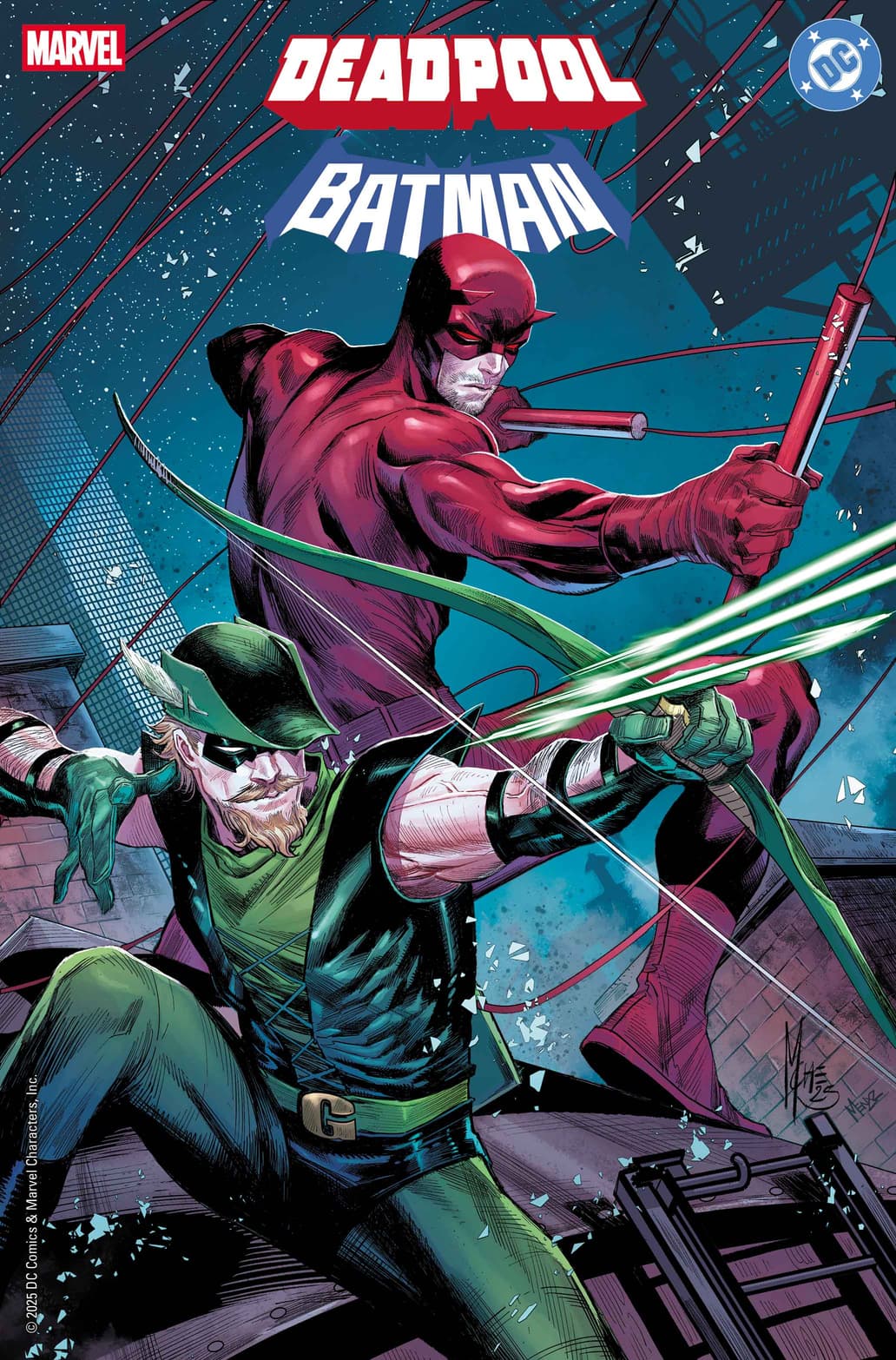Dude you're always so long winded for the sake of being long winded and you ALWAYS seem to shoot from the hip while positioning things around your own personal views rather than what is likely or probable.
Well I'm a human being, not a robot. And a gamer, not an investor. So yeah I'm gonna look at things from a personal "is this what I'd like" POV but that doesn't come at the expense of looking at things objectively as well.
IMO the best analysis' do both.
First, the WBD split isn't happening for another year, so mid 2026. Any deal probably doesn't wrap up until at the early 2027 and with regulatory oversight and closing, you don't expect a deal like this to close until at the earliest 2028. With games taking at a minimum of 5 years to develop at this size and scope, the earliest an insomniac batman game for example could come out would be 2033. We know that Spider-Man 3 is on the roadmap for 2028 and that Insomniac has no real plans for Spider-Man beyond that.
So in other words you're saying Insomniac would be open to doing a AAA Batman game...
...which just compounds on a concern I already expressed: bogging studios like Insomniac down with licensed superhero games. I know they're really good at it, they've shown that with Spiderman. But again, and yes this next part is from a personal preference, I would not like to see them get "stuck" doing only superhero games for the next 5-10 years (or more).
I know a AAA Batman game from Insomniac would sell gangbusters, but that doesn't mean it's something I have to personally want if my interests in superhero content on the whole has waned. It's also not something I'd like to see if it basically forces the game to be Day 1 across PS & PC, and basically pushes Insomniac into that path of "technically multiplat studio" as a result.
Are there ways those concerns could be mitigated? Yes. Insomniac could form multiple teams, for starters, working on different games. So even if the main team is working on Spiderman or Marvel or Batman, another team could be working on Ratchet & Clank, and maybe yet another on a new single-player IP. Now yes, a new R&C would sell nowhere near as much as that AAA Batman game....but I don't care. I still think it'd be a good thing if they could make both, they would have appeal to certain niches. Believe it or not some people may want that R&C game more than that Batman game.
Also last I remember, in the Insomniac slides they had a new R&C penciled for 2030; there was a rumor that had been cancelled, but hopefully that rumor was just BS (likely was). And it'd be nice to see SIE expand some of these studios to support multiple teams the way they have with Naughty Dog.
It's not always about the quantity of games, though I disagree fundamentally there as well, but the key is really the quality of games.
Insomniac has since 2018 released 3 of the best spider-man games of all time. If Sony could apply that quality to The Wizarding World, it would be a big deal.
Yes, for people into Harry Potter. And I
KNOW that type of game would probably do at least 20 million easily...but would it be a PlayStation exclusive? Or would it be a Steam & EGS release too? Would it be Day 1 on those platforms? What about a Switch 2 version, would that be in the cards?
This inherently is part of the problem for me. Buying something like WB's game studio lot and licensing rights to their big IP for game adaptations, would just likely necessitate those games being multiplat anyway, just as previous versions were. That's more money for SIE obviously, but it wouldn't change much for PlayStation gamers because we'd of just gotten those games anyway. As for SIE's involvement in them, well they could still do that while those studios stayed with WB, and save on acquisition costs & licensing costs, especially if the games would be multiplat as usual even if SIE bought the studios and got the licenses.
And that feeds right into the other concern: the more SIE pursued such a multiplat strategy for 3P games they publish or games from major 3P studios now acquired by them...it's only inevitable that they decide to pursue the same strategy with internal 1P studios as well, beyond the GAAS titles. And that's when they'd find themselves in a very similar identity crisis as what Microsoft's been going through since 2024 (actually, a bit earlier than that).
I don't want that happening with PlayStation, so it's important to look at the full picture of what an acquisition like this could bring, and the licenses involved, especially considering SIE's multiplat strategy over the past few years. And to look at it beyond simply "
well look at all the extra money Sony makes!!"
This is where your mentality is kind of on full display. Your hang up makes you think about this multiplatform concern of yours from all angles and you try to fit things into all angles.
The contracts on these games are already finished.
You would have been wiser to focus on the the operating costs driving things like Day 1 releases across multiple platforms rather than suggest oddly that somehow Marvel would swoop in and change contracts after the fact to create your boogeyman of a fear.
Companies can alter the terms of contracts anytime they want, or at least pursue the terms of those contracts in renewed deliberations with partners also involved in those deals. For the former we see it all the time when sites like Youtube update their Terms of Service; with the latter, we saw it recently with Microsoft and Disney/Lucasfilm agreeing to change the terms of their Indiana Jones deal to add PS5 as a platform after removing it prior.
Also worth mentioning, that Sony/SIE and Marvel regularly renew licensing rights to Spiderman every few years, and the same I'd assume for game licensing rights as well. As for operating costs, I'm aware of the impact that has, and the costs of spreading Q&A optimization testing to multiple platforms for a Day 1 release. However, we already have examples of SIE having tested this anyway with LEGO Horizon (not in-house, but 50% their IP and done with their help & publishing), and to some degree we're seeing it again with Lost Soul Aside. Again, not their game from an internal 1P, but with SIE's involvement and a Day 1 PS5/PC release. I'm sure they could've tried for an approach more like Stellar Blade, but they decided against that this time?
So it's worth taking into consideration the others things I brought up, in addition to things like operating expenditure or the logistics thereof that you are zeroed-in on (but mistakenly believe I have
not taken into consideration).
I don't love a WB acquisition for the gaming side, simply because I think there are better things for the gaming industry for Sony to be involved in, such as some investments in bringing Japanese AAA development to a new level, but it's kind of ridiculous to argue that we wouldn't see some of the best Harry Potter games ever through this.
Again, I never said anything as to the quality of these potential games under SIE. My concern's been it'd be yet more licensed IP, essentially, either major superhero or major fantasy novel/film IP, and that's not something I'm particularly super hyped for unless it's very unexpected and a novel approach from SIE's POV.
That's why Marvel Tokon was such a big surprise (in a good way); yeah a 2D/2.5D fighter with Marvel characters isn't new at all, nor is ArcSys making a fighting game, but SIE haven't put their weight behind an anime-style Japanese fighting game as a publisher since the PS1 days (SCEJ/SCEA) with Toshinden. And their involvement with Marvel Tokon is a lot deeper than it was for even those Toshinden games.
THAT'S something novel for them in this space of superhero games, and unexpected considering some of the things they've been prioritizing the past few years. An even prettier follow-up on Hogwarts Legacy with Horizon-style combat & RPG-lite mechanics and a Spiderman 2-style story? Outside of the visual specter that would be magnitudes less exciting and more predictable than a Marvel Tokon, IMO.
Who said PC ports would lead to more non-GaaS titles? I think you misunderstood what people were saying. PC Ports are a way for Sony to mitigate the costs of rising development costs. That doesn't suggest necessary an increase in titles, but rather being better able to sustain the titles and projects. Same thing with successful transmedia.
A lot of people were saying that when the strategy was first unveiled. PC ports would bring in revenue to help fund new games for the console. Well, among internal teams that hasn't exactly worked out for the best this gen.
As for the strategy of using them to mitigate costs...then that was a poor reasoning. Studios like Naughty Dog had to spend lots of money to retool pipelines for better accommodation of PC deployment. Costs for PC development are baked into the total initial development costs to some extent, because it's not like Nixxes are developing PC versions from the ground-up. If SIE really wanted to mitigate costs of rising development, they should've focused on cutting out redundancies and not hiring bloatware equivalents of consultancy firms adding nothing of value to the finished product.
One other thing I've seen some people say, is that the PC push was really for markets like China and Korea. Well, fine...why not just make region-locked versions of your ports to Steam for Chinese and Korean players, then? Why make global PC versions with multi-language support and officially sold around the world?
The 2 million copies sold of The Last of Us Part 2 since the second season aired would have generated 100 million dollars. That erases much of the pressure on that games development costs. Especially when you consider that the game cost 220 million dollars to develop. The transmedia success of the game itself will ultimately likely pay for the development costs of the game. And yes PC is a big part of that.
Edit: Bluepoint and Bend have never featured prominently in SIE's game portfolio.
You are assuming those 2 million copies of TLOU2 sold at $50, when the truth is you don't know what the average sales price was. Even more than that, we don't know the platform split distribution of those 2 million, or at what point during the second season (which was something of a disaster, but that's a different topic) most of those copies sold. We don't even know what amount was actual net profit from the revenue generated.
Therefore it's entirely possible that PC's role in those 2 million sold/$100 million generated revenue worth of sales was a footnote, just exacerbating the issue and again forcing us to ask the question: why bother with such ports to begin with? The paltry profits those PC sales bring in are nothing compared to the bad faith optics and negative online discourse peddled about the game or IP mainly from gamers & influencers in PC-centric circles of influence to begin with. All that does is drag down the marquee perception of the IP as a whole.




